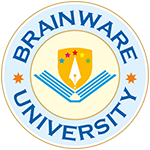
Every business, big or small, needs a financial accountant. So, there are thousands of jobs for the right candidates, trained accountants with the proper certifications. It’s a recession-proof profession. Irrespective of the economic situation, businesses must always have professional accountants.
You can be hired as a full time accountant, cashier, payroll executive, tax advisor, audit assistant, accounts payable clerk, budget analyst, VAT consultant, tax advisor, investment advisor, financial adviser or analyst. In time, you can also become Chief Financial Officer or Director Finance. You can also work as a financial clerk, manage financial records, bill customers, and do all kinds of other jobs as a financial accountant. Do a Post Graduate Diploma in Computerized Financial Accounting from Brainware and become industry ready.
A diploma in computerized financial accounting will expose you to accounting techniques and intricacies and will also train you to use a wide range of accounting software. You will learn depreciation, cost accounting, job costing, how to rectify errors, ERP, TDS, inventory management, creating a sales invoice, income & expense statement, provident fund, gratuity, ratio analysis, using Tally, company law, filing TDS, VAT, excise duty, and much more.
 There are two modules in our Diploma program. Module 1 deals with Accounting Applications, Statutory Compliance, Payroll Accounting, and Module 2 is on Taxation, Company Law & e-Filing.
There are two modules in our Diploma program. Module 1 deals with Accounting Applications, Statutory Compliance, Payroll Accounting, and Module 2 is on Taxation, Company Law & e-Filing.
Brainware will help you find a job once you have learned them and received your Diploma. You can get a job as a financial accountant in the following industries – Finance, Banking, Insurance, Retail, Service, Manufacturing, Web & e-com, BPO & KPO.
Responsibilities of a Financial Accountant in Different Roles
Tax Accountant: Prepare income tax information for corporate and government clients. You will also have to calculate the tax repercussions of business plans. You can work for your employer or as a freelancer tax accountant.
Cost Accountant: Prepare and execute cost accounting methods. You will have to oversee the cost control systems, interpret cost audits, and such others.
Auditor – You will have to check financial statements to verify that they are presented fairly and must do your bit to improve financial efficiency and performance. Your job is also to detect errors or frauds, and evaluate internal control systems.
Payroll Executive – Your job is to make monthly payments, check hours worked, calculate overtime, calculate deductions, manage sickness and maternity pay, issue tax forms and others.
Cost Estimator: You will be in charge of estimating potential costs of a business venture.
Chief Financial Adviser/Consultant: You will help the company formulate feasible financial plans, impart advice on debt financing, and manage budgets.
Learn more about the Diploma in Computerized Financial Accounting from Brainware








